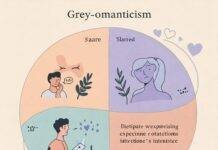In today’s complex world, the reasons people stay in relationships extend far beyond the traditional notion of love. Indeed, sometimes, the decision to remain is rooted in practicality, comfort, and the allure of a certain lifestyle. Consequently, staying for lifestyle has become a reality for many, where the benefits of a partnership outweigh the absence of deep emotional connection. Let’s delve into this phenomenon and understand the factors that drive such choices.
H2: Understanding the Allure of Lifestyle Benefits
Many individuals find themselves staying for lifestyle due to the tangible advantages a relationship offers. Specifically, these benefits can range from financial stability and social status to the sheer convenience of shared living.
- Firstly, financial stability: For some, the security of shared finances and resources is a significant motivator. This can be especially true in economically challenging times.
- Secondly, social status: Relationships can elevate social standing, providing access to networks and opportunities that might otherwise be unavailable.
- Finally, convenience and comfort: Shared responsibilities, a comfortable living arrangement, and the familiarity of a long-term partnership can be compelling reasons to stay.

H3: The Role of Practicality in Relationship Choices
Practical considerations often play a crucial role in the decision to continue a relationship. Furthermore, when emotional needs are not fully met, individuals may rationalize their choice by focusing on the practical aspects.
- For instance, shared responsibilities: Splitting household chores, childcare, and other duties can make life easier.
- Additionally, established routines: The predictability and stability of a long-term relationship can be comforting.
- Moreover, fear of the unknown: The prospect of starting over can be daunting, leading some to stay in familiar, albeit unfulfilling, situations.
H2: Emotional Needs vs. Practical Advantages
While staying for lifestyle can offer numerous benefits, it’s essential to acknowledge the potential emotional toll. Therefore, balancing practical advantages with emotional needs is crucial for long-term well-being.
- However, emotional fulfillment: The absence of emotional connection can lead to feelings of loneliness and dissatisfaction.
- In addition, personal growth: Staying in a stagnant relationship can hinder personal development and self-discovery.
- Crucially, honest communication: Open and honest conversations about needs and expectations are vital, even when the focus is on lifestyle.

H3: Recognizing the Signs and Making Informed Choices
If you suspect you or someone you know is staying for lifestyle, recognizing the signs is the first step towards making informed choices.
- Notably, lack of emotional intimacy: Conversations may be superficial, and there might be a lack of emotional vulnerability.
- Also, focus on tangible benefits: Discussions often revolve around finances, schedules, and practical matters rather than emotional connection.
- Lastly, hesitation to address issues: Difficult conversations about feelings and needs are avoided.
H2: Strategies for Navigating Lifestyle-Driven Relationships
If you find yourself in a relationship where lifestyle benefits are a primary factor, there are strategies to navigate the situation.
- Firstly, self-reflection: Honestly assess your needs and priorities.
- Then, communication: Express your feelings and expectations clearly.
- Subsequently, seeking support: Consider therapy or counseling to explore your options.

Outbound Reference Links:
- For relationship dynamics and support: Psychology Today
- For financial aspects of relationships: Investopedia
- For relationship and life coaching: International Coaching Federation




































